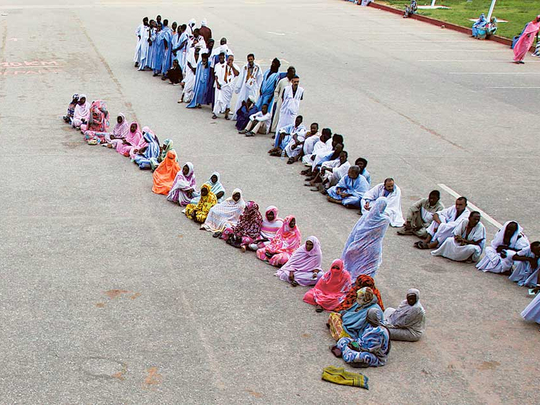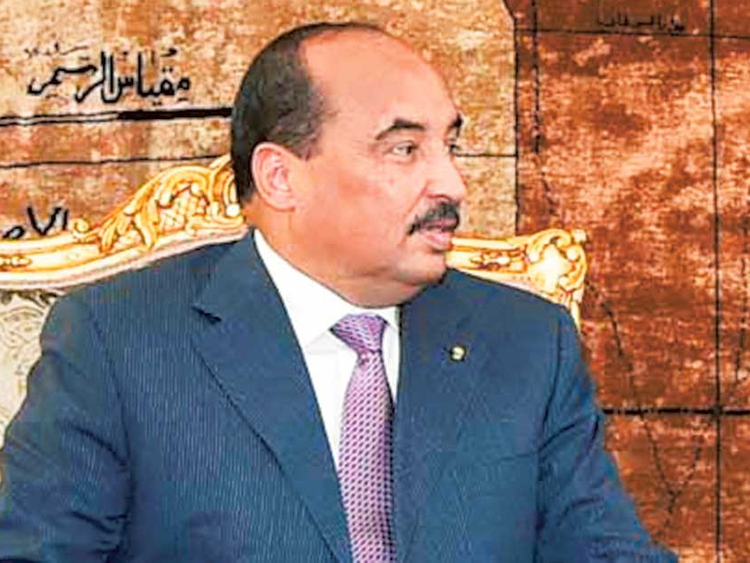
Cairo: Waiting under Cairo’s scorching sun for a bus to take him to his house in the suburban area of Al Marj, Salah Matrawi looked baffled when he was asked if he had heard about Mauritania.
“Mooritania? Is this the name of a new shopping mall in New Cairo?” the 27-year-old mechanic asked, referring to an area on the capital’s outskirts famous for luxury malls and gated compounds.
When informed that Mauritania is an Arab country hosting an Arab League summit next month, Matrawi commented sarcastically: “All what I know is the street of Gama’t Al Dawal Al Arabia [the Arab League of States] in Mohandessin [an upmarket quarter near Cairo.”
As his bus appeared in sign, Matarawi braced up to jump onto the vehicle. “My regards to the Arab League and Mooritania!” he said as he squeezed himself into the bus.
A man in his mid-fifties also waiting at the bus stop did not hide his disappointment at what he called “ignorance of today’s people”.
Using a local newspaper as an improvised umbrella against the sun, the man giving his first name as Muktar, said he is pleased that the annual Arab summit will be held in Mauritania.
“Mauritania is an Arab Muslim country, which is the Arab world’s gateway to Africa,” he said. “It joined the Arab League in the 1970s, more than 10 years after its independence.”
Muktar, a father of four, sees in the coming Arab conference, due to open on Monday in the Mauritanian capital Nouakchott, a “golden chance for Mauritanians and their Arab brethren” to come closer.
“To Mauritanians, this event means history for them because it will be the first time for their country to host the summit since it [Mauritania] became a member of the Arab League,” added Muktar, who works as a history teacher at a government-run school in south Cairo.
“It is something good that the Egyptian media has started in the last few days to shed light on Mauritania. This attention will help in ending Mauritanians’ feeling that they are an ignored part of the Arab world. This may also encourage Egyptians and other Arabs to go and visit Mauritania.”
In April, Mauritanian President Mohammad Ould Abdul Aziz visited Egypt where he met with President Abdul Fattah Al Sissi.
Earlier this year, Mauritania offered to host the annual Arab summit after an apology from Morocco where the conference was originally scheduled to be held in March.
Muktar, the schoolteacher, hopes that the Arab countries will take advantage of the Mauritania gathering to boost their links to Africa and stop what he termed as “Israeli expansion” in the continent.
“[Israeli Prime Minister Benjamin] Netanyahu recently visited four African states. His trip should be a warning bell for us about Israeli ambitions in Africa.”
Netanyahu’s tour earlier this month, the first by an Israeli premier in nearly three decades, took him to Ethiopia, Uganda, Kenya and Rwanda.
Located in the Maghreb region of western North Africa, Mauritania is bordered by the Atlantic Ocean to the west, Morocco in the north, Algeria in the north east, Mali in the east and Senegal in south west.
While recognising Mauritania as an Arab Muslim country, Farid Ebrahim, a communication engineer, said that he does not “know much about geography”.
“As an Arab and Muslim, I am happy that the Arab summit will be held in Mauritania,” said the 27-year-old man. “I have started to see reports in the Egyptian media about Mauritania and its people. I hope this interest will continue after the conference so that Arab youth will have more information about it.”













